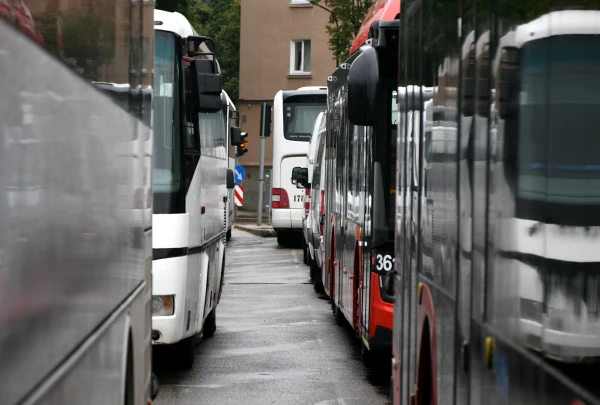
The transition to short-term contracts will lead to passenger carriers once again using older buses, said the president of the Latvian Association of Passenger Carriers (LAPC) Ivo Oshenieks to the LETA agency.
The association opposes the change in the terms of public procurement for lots in Cesis, Limbazi, and Sigulda, which provide for contracts to be concluded for three years, whereas previously the practice of concluding such contracts lasted ten years.
The association points out that short-term contracts mean that the carrier will not be able to recoup investments in acquiring new transport and will be forced to use old buses of various brands, which will increase operating costs, reduce reliability, and not solve the problem of carbon dioxide (CO₂) emissions.
According to the association's calculations, over three years, capital will not have time to amortize evenly, and the cost per kilometer will increase by 15–25% compared to a ten-year contract.
Oshenieks emphasizes that short-term contracts are the wrong approach, and such a model has not been agreed upon with the industry.
"In the field of passenger transport, it was important to ensure long-term contracts so that carriers could switch to as new bus models as possible by securing long-term loans for this purpose," explains the head of the association.
He notes that the industry was counting on predictability and on the conditions that were agreed upon in 2019 for the period from 2021 to 2030.
"Such a decision on short-term contracts does not improve the situation in the industry and contradicts the interests of residents — the motivation to invest in environmentally friendly buses, improve passenger comfort, as well as in modern information and ticket sales systems disappears," points out Oshenieks.
The association explains that the life cycle of buses and the related infrastructure for passenger transport is 10–12 years. Thus, in the case of a three-year contract, the carrier will not be able to recoup investments in acquiring new transport and will be forced to use old buses, which increases operating costs.
Also, capital investments, including depots, washing lines, repair facilities, and offices, will have to be amortized over 36 months, that is, three years, instead of ten, which will significantly increase the cost per kilometer for the state.
Oshenieks adds that the state, in essence, gains nothing from such an approach, as it will have to pay higher compensation from the budget for accelerated depreciation, administrative costs will also increase, as procurement will have to be conducted every three years, and moreover, it will not be possible to achieve the goals of the long-term transport and decarbonization strategy.
The association emphasizes that such an approach contradicts the overall European practice, as the optimal and most commonly used standard in Europe is a ten-year contract, which ensures the return on investment in transport and infrastructure, guarantees high-quality services, and updates the fleet.
As previously reported, the Road Transport Administration (RTA) announced a procurement for regional bus transport in the vicinity of Cesis, Limbazi, and Sigulda, according to information in the Electronic Procurement System (EIS).
The contract is planned to be concluded for three years. The estimated total value of the contract is 24.953 million euros excluding value-added tax (VAT). The procurement is divided into two parts: transport on routes in the "Cesis" part and on routes in the "Sigulda, Limbazi" parts.
It was also reported that on August 12 of this year, representatives of public transport held a protest outside the Cabinet of Ministers building, calling on the government to compensate for the rising costs caused by unforeseen emergencies. On September 16, carriers organized a protest called "One Hour Without Public Transport" to draw attention to the insufficient funding of the public transport sector.
Carriers demanded compensation for 10% of losses incurred due to long-term contracts in emergency conditions from July 1, 2022, to August 31, 2025.
In mid-September, representatives of the RTA met with representatives of passenger carriers to discuss current issues related to long-term contracts. After the meeting, the RTA announced that it would seek legal opportunities to meet the carriers' demands.














Leave a comment